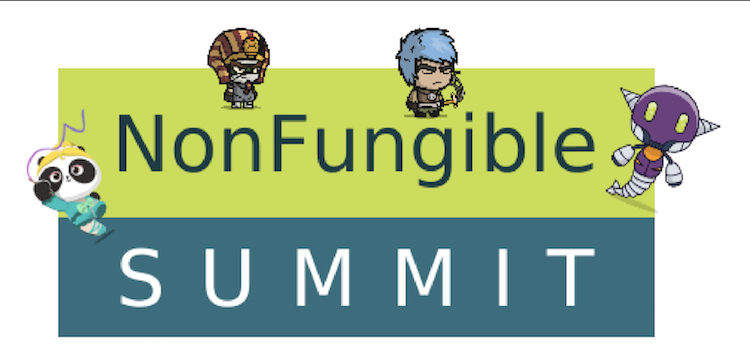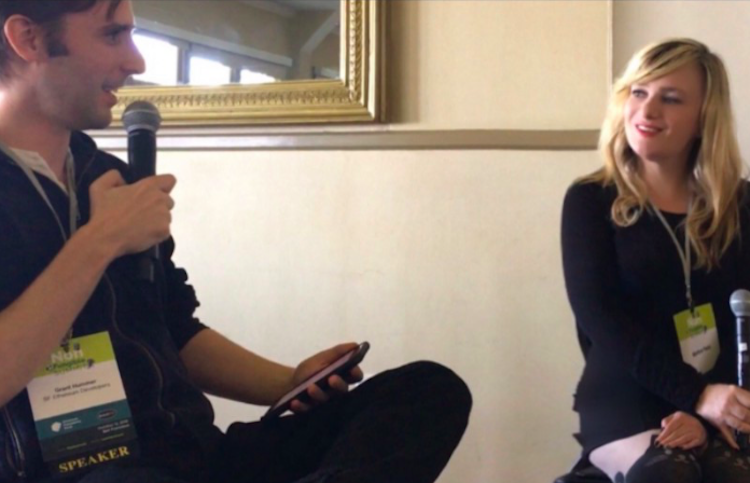NFTs the Killer dApp? Not coming soon to Fortnite

Crypto pioneers place bets on how to get first billion people onto blockchain at SF Blockchain Week

If 2017 was about fundraising, and 2018 was about infrastructure, then 2019 will be about mass adoption, but whether global payments or nonfungible tokens (NFTs) are the killer dApp is up for debate.
Many crypto pioneers at SF Blockchain Week said they’re placing bets on gaming, including Garry Tan of Initialized Capital, an investor in Horizon Blockchain Games, Bart Stephens of Blockchain Capital, an investor in OpenSea an NFT exchange, and Jeremy Gardner of Augur and Ausum Ventures.
At Global Blockchain Forum, Tan told CNBC’s Ran Neu Ner, “The first mass adoption product will be a mobile game where the end user won’t even know they’re doing a transaction on the Ethereum network when buying a digital good or participating in a marketplace.”
“We’ll start to see this in 18 months or less. It’s not too far away. My partner Alexis Ohanian recently visited the Fortnite guys… people spend an insane amount of money on digital goods.”
Gardner added, “Sometime in the next one to two years there will be a Pokemon Go-like game where people collect NFTs with unique characteristics to level up, that have real-world value, and can be exchanged with anyone in the world. We’ll see a burgeoning economy emerge out of some game and assets issued in that game will be interoperable with assets of other games.”
“Gaming will be the first case with tens of millions of daily active users of crypto. NFTs make gaming and online collectibles more valuable. The amount of time adolescents spend on games is outrageous, and they don’t make money on it. If people can make money on games, they’re playing, that sounds like the future to me!”
At Back To The Crypto Future, Blockchain Capital’s Bart Stephens said, “One of the areas that we see organic demand in startup activity and end-user activity is the intersection of video games and crypto — nonfungible tokens,” Stephens argues.
“If you play a game like World of Warcraft or Second Life, there are tens of millions, and if you include Asia, over a hundred million users that live and play in these virtual worlds with virtual economies and virtual currencies, and you can have virtual objects, but at the end of the day until this year, all of those objects weren’t owned by you. You might have spent a year of your life getting some super special fire sword, but it turns out that in World of Warcraft you don’t own that fire sword,” Stephens goes on to elaborate.
“Blizzard Entertainment owned by Activision, a public company, owns that fire sword. So if you try to sell it for U.S. dollars, you are out of luck as a gamer. That is changing now. Persistent worlds, even casual games, you can earn something in game slaying a dragon and get a magical coat of armor, you can pull that out of the game, go to OpenSea and sell it for Bitcoin, and go to Coinbase and sell your Bitcoin for U.S. Dollars.”
“CryptoKitties was the first example of that. There will be many more games that capture the notion that videogamers own the experience and work product and results of some endeavor online. So that is an area where we’re seeing an organic demand environment unlike some of the other areas which are still early stage like enterprise adoption, still at the proof of concept stage.”
When asked what’s standing in the way of adoption, Tan replied, “It’s how users are being onboarded. Founders need to remove steps. There are too many steps. It’s hard to get your hands on crypto; then once you have it, you need to transfer it to a wallet,” Tan outlines the simplification that needs to occur in the space.
“How is a normal human being going to figure out how to buy CryptoKitties?” Gardner added, “They need a reason and good user experiences.”
Yes, gamers get crypto. Digital goods and virtual currency have been a part of the industry since the dawn of gaming. There are 2.3 billion gamers worldwide who will spend $137.9 billion mostly on digital goods this year, according to NewZoo.
Top grossing games make over a million a day. Candy Crush makes over $4 million a day for King. Clash Royale and Clash of Clans make millions a day for Supercell. SuperData estimates that Fortnite made over $1 billion its first nine months, and Roblox which was just valued at $2.5 billion with 70 million monthly active users.
Certainly, it would be huge if Fortnite, with its 125 million players and 78.3 million monthly active users, started to test NFTs on the blockchain, except …
Epic told me there are no plans to integrate blockchain into Fortnite or Unreal Engine.
You can’t spell nonFUNgible without FUN
At the NonFungible Summit co-sponsored by Blockchain Gamer, I was joined on my Crypto Games panel by Grant Hummer of SF Ethereum Community Fund, Philippe Castonguay of Horizon Blockchain Games, Linda Lu of 645 Ventures and Jeff Tong, serial entrepreneur, as we discussed what’s needed to get the top publishers on board.
We looked at the Steam Community Marketplace, a trading post of in-game items for over 125 million registered users owned by Valve. A simple integration with the 0x protocol could instantly make it one of the largest NFT exchanges in the world.
We discussed Ubisoft’s burgeoning relationship with CryptoKitties which began at its Blockchain Heroes hackathon this summer. Ubisoft has been the most bullish of all the top publishers and recently formed the Blockchain Gaming Alliance with Ethereum co-creator Joe Lubin of ConsenSys, Fig, Alto, B2Expand, EverdreamSoft, Gimli, Enjin, and Ultra to create common standards and a more interoperable and transparent ecosystem, which will benefit stakeholders, by furthering innovation and ensuring economic viability.
As to whether the top publishers will ever cross the line, Matt Condon, producer of the Nonfungible Summit, shared this post from Tony Sheng of Decentraland. In short, centralization serves them. Gaming simply may not be ready yet.
The jury is out whether the incumbents will resist or embrace the new technology, but for the hundreds of blockchain game developers sitting in the audience, it was clear that we will have a metaverse of NFTs soon, even if it takes the indies to lead the revolution. They just need to remember to make the game fun and move blockchain to the backend.
Don’t forget to check out our upcoming event: Blockchain Gamer Connects in London! For more information, check out the link!
Continue the discussion in our Telegram group and don’t forget to follow BlockchainGamer.biz on Twitter, Facebook, and YouTube.
